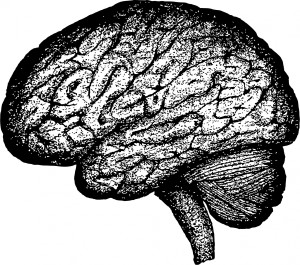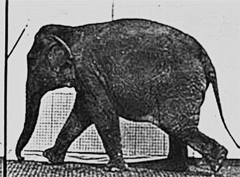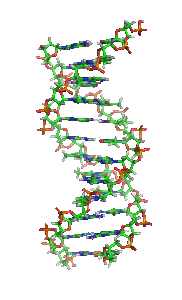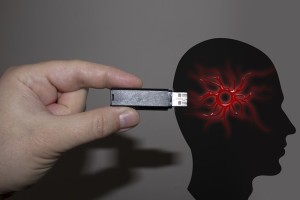Unless you’ve been binging on Netflix the last ten years, you’ll have happened to notice that the neuropsychologists among us have been making a lot of progress. The main progress has come from scientists utilizing relatively new fMRI technology to glimpse a person’s brain activity while they are in the midst of a task. These brain-peepers can then take the data and say things like: “When a person looks at a picture of a cute puppy, this part of their brain lights up. But when a person looks at a picture of a grizzly bear, this other part of their brain lights up.”
Science is Fun (or is it?)
 At the first, all of this new information that’s pouring forth in study after study and book after book seems totally harmless, interesting and even fun. I mean, who wouldn’t want to know what makes their prefrontal cortex “light up”? And, even from an ethical standpoint, as long as the scientists are just looking, no harm is done. But it will not be long before they go from passive bystanders, merely peering into the brain, to in fact being able to manipulate the brain for their own purposes. To me, the prospect of decoding the brain, much like scientists have decoded DNA, has serious repurcussions from an ethical standpoint. Now, I realize that what I’m talking about might sound like science fiction right now, but in a few years, with a few scientific leaps forward, we will arrive at a brave new world not of brain scanning, but of brain programming. If the neuropsychologists decode the brain sufficiently, then they will be able to hack it–and who could resist the temptation? Here are my chief ethical worries about what lies ahead:
At the first, all of this new information that’s pouring forth in study after study and book after book seems totally harmless, interesting and even fun. I mean, who wouldn’t want to know what makes their prefrontal cortex “light up”? And, even from an ethical standpoint, as long as the scientists are just looking, no harm is done. But it will not be long before they go from passive bystanders, merely peering into the brain, to in fact being able to manipulate the brain for their own purposes. To me, the prospect of decoding the brain, much like scientists have decoded DNA, has serious repurcussions from an ethical standpoint. Now, I realize that what I’m talking about might sound like science fiction right now, but in a few years, with a few scientific leaps forward, we will arrive at a brave new world not of brain scanning, but of brain programming. If the neuropsychologists decode the brain sufficiently, then they will be able to hack it–and who could resist the temptation? Here are my chief ethical worries about what lies ahead:
#1 – Tinkering With the Will
So far, the brain scientists have not been able to discover the keys to the human will. If you poke a person’s brain or jolt it with current–even if it forces the subject’s hand in the air or prompts him or her to spew curse words–the person will still be able to say, “Hey, you did that to me!” But what if the scientists decode the brain so much that they can access the will and reprogram it? Of course, such a trend would start as a noble effort–to reprogram the brain of an addict to quit smoking, reprogram the brain of a morbidly obese patient to stop eating so much.
 But what if, after this technique has been perfected, a new patient arrives in Dr. Brain’s office and says, “Doc, I’ve got a hard life. Things haven’t worked out so well for me. I have a terrible job that I hate, but I know I need to stick with it for the sake of my family. Can you help me?” At this point, it would be very tempting for Dr. Brain to tinker with the patient’s will so that the patient wants to stick with the job that he actually hates. Perhaps the doctor can even cause him to like it.
But what if, after this technique has been perfected, a new patient arrives in Dr. Brain’s office and says, “Doc, I’ve got a hard life. Things haven’t worked out so well for me. I have a terrible job that I hate, but I know I need to stick with it for the sake of my family. Can you help me?” At this point, it would be very tempting for Dr. Brain to tinker with the patient’s will so that the patient wants to stick with the job that he actually hates. Perhaps the doctor can even cause him to like it.
Again, you might say that that’s not so bad. Maybe it will all be for the good. But what if this technology can be deployed by the government–any government–to make willing soldiers out of a revolutionary population or to bureaucratically pacify people. (“Oh, I see you got a 500 on the SAT. We’ll fix your brain so that your aspirations don’t climb too high. You’ll be happy being a janitor and never want anything more.”) They could neurologically “fix” people to want the careers that nobody wants.
#2 – Tinkering with the Memory
 Next, if they decode the brain, the scientists could tinker with our memories. It would start with noble therapies like lessening the impact of painful memories for PTSD patients or those with a traumatic childhood. Yet if they become truly capable of erasing memories from our brains, look out! A person could go to an unscrupulous brain doctor and ask that their memory be wiped of unpleasant memories like their last dating relationship or their bad debts or their failures as a child. Again, while such a technology could be used for the good, it could also lead down a dark path. What if oppressive governments could wipe revolutionary memories from citizens or use memory-wiping as a punishment for crimes?
Next, if they decode the brain, the scientists could tinker with our memories. It would start with noble therapies like lessening the impact of painful memories for PTSD patients or those with a traumatic childhood. Yet if they become truly capable of erasing memories from our brains, look out! A person could go to an unscrupulous brain doctor and ask that their memory be wiped of unpleasant memories like their last dating relationship or their bad debts or their failures as a child. Again, while such a technology could be used for the good, it could also lead down a dark path. What if oppressive governments could wipe revolutionary memories from citizens or use memory-wiping as a punishment for crimes?
#3 – Downloading the Brain
 It is possible, even now, to get your entire genome sequenced. The computers produce a giant file, a BAM file, for each genome sequenced. This huge 65GB file can be used to analyze a person’s DNA for defects and inherited traits. But what if, in the near future, all of the data in a person’s brain can be downloaded to a similar file? For research and diagnostic purposes this could be a God-send. In fact, even for psychologists and therapists, such a treasure trove of data could be immensely helpful. Who wouldn’t want access to a downloaded copy of all of their memories ever–complete with pictures and movies?
It is possible, even now, to get your entire genome sequenced. The computers produce a giant file, a BAM file, for each genome sequenced. This huge 65GB file can be used to analyze a person’s DNA for defects and inherited traits. But what if, in the near future, all of the data in a person’s brain can be downloaded to a similar file? For research and diagnostic purposes this could be a God-send. In fact, even for psychologists and therapists, such a treasure trove of data could be immensely helpful. Who wouldn’t want access to a downloaded copy of all of their memories ever–complete with pictures and movies?
Yet, even if it were possible, just imagine all of the non-research oriented abuses that could creep in. Prospective employers could demand a copy of your “BRAIN” file before you get hired. A college you applied to could ask for your BRAIN file to check that you have the right knowledge. Heck, even the NSA would probably store a copy of your BRAIN file on their giant servers in Utah. The brain files of geniuses like Stephen Hawking would be studied and prisoners’ brain files might be taken by the government in order to solve more crimes, but just imagine what might lurk in the brain files of certain politicians and how hungry the media would be to get at them!
#4 – Uploading to the Brain
 In this fictive future we are imagining a world in which scientists have successfully decoded the brain, found a way to download its data into a computer file. But surely, if they are able to accomplish all of this, then they will make a way to upload to the brain. Just imagine a micro-USB port behind your left ear. Again, on the one hand, this sounds rather nice. If you wanted to learn Japanese or read Moby Dick, all you’d have to do is plug in for a second or two and–presto!–you’ve got it in your mind.
In this fictive future we are imagining a world in which scientists have successfully decoded the brain, found a way to download its data into a computer file. But surely, if they are able to accomplish all of this, then they will make a way to upload to the brain. Just imagine a micro-USB port behind your left ear. Again, on the one hand, this sounds rather nice. If you wanted to learn Japanese or read Moby Dick, all you’d have to do is plug in for a second or two and–presto!–you’ve got it in your mind.
Such a technology would be revolutionary for education. You could get a whole college education in just a few gigabytes of data and upload it to your brain. In fact, if you feel indecisive about your major, you could major in everything and have it all uploaded! But imagine being operated on by a surgeon who went to “USB Med School” and only had knowledge uploaded to his brain, but had never actually performed a surgery before. Yikes! Or worse, what about a young man contemplating the priesthood? Instead of taking a few years to carefully discern and to undergo seminary training, he could just have all the knowledge uploaded to his brain and get ordained right away.
 Rather than simply wiping away bad memories, you could upload good ones. If you had a bad childhood, that could be swapped out for a good one in your memory. If you didn’t get to take a vacation, you could upload one to your brain. The possibilities are endless!
Rather than simply wiping away bad memories, you could upload good ones. If you had a bad childhood, that could be swapped out for a good one in your memory. If you didn’t get to take a vacation, you could upload one to your brain. The possibilities are endless!
Worrying About Today and Tomorrow
The scientists have not gotten this far yet. Right now, they are limited to peering into the brain and trying to influence it with drug therapies, electricity and even surgery. Right now, they cannot download or upload. They can’t erase memories or create fictitious ones. And they certainly cannot tinker with the human will. Yet if the decoding of the human genome is an object lesson in the power of science when faced with a complex problem, the brain could follow suit. It could be that a few decades from now instead of going to get your genome sequenced at 23andMe, you might be getting your brain analyzed and downloaded instead. I just hope that the scientists are thinking carefully about these things as they proceed and don’t allow their curiosity to lead us down a dark alley.
